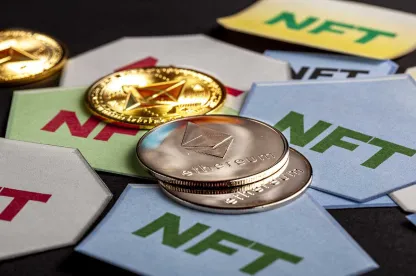Since the early days of the launch of the Bored Ape Yacht Club (BAYC) non-fungible tokens (NFTs), several celebrities have promoted the NFTs. On Dec. 8, 2022, plaintiffs Adonis Real and Adam Titcher brought a lawsuit against Yuga Labs, creators of the BAYC, alleging that Yuga Labs was involved in a scheme with the “highly connected” talent agent Greg Oseary, a number of well-known celebrities, and Moonpay USA LLC, a crypto tech company. According to the complaint:
-
Yuga Labs partnered with Oseary to recruit celebrities to promote and solicit sales of BYAC;
-
Celebrities promoted the BAYC on their various platforms;
-
Oseary used MoonPay to secretly pay the celebrities; and
-
The celebrities failed to disclose the payments in their endorsements.
According to the complaint, as a result of the various and misleading celebrity promotions, trading volume for the BYAC NFTs exploded, prompting the defendants to launch the ApeCoin and form the ApeCoin decentralized autonomous organization (DAO). Investors who had purchased the ApeCoin allegedly lost a significant amount of money when the value of the coins decreased.
This case highlights the potential risks that may arise in connection with certain endorsements. In addition to the FTC, the SEC also has issued guidance on requirements in connection with promotional activities relating to securities, which may include digital assets, such as tokens or NFTs. Under SEC guidance, any paid promoter, celebrity or otherwise, of a security, including digital assets, must disclose the nature, scope and amount of compensation received in exchange for the promotion. This would include tv/radio advertisements and print, in addition to promotions on social media sites.





 />i
/>i
